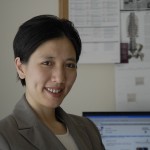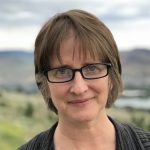At just one year old, my parents enrolled me into gymnastics. I quickly learned to love the sport; I could somersault before I could walk, and I was doing cartwheels and in the competitive league by three years of age. Gymnastics ended up becoming the entirety of my life and I was at the gym everyday my entire youth. For those unfamiliar with gymnastics, the sport is very physically demanding and requires strength, coordination and flexibility. In my opinion, it’s the hardest sport out there. In my career, I participated in both artistic and acrobatic gymnastics. When I was fifteen, I was doing a mock competition with my team preparing for Provincials. I fell on my head at the end of the routine and after being rushed to Sick Kids Hospital in Toronto they concluded I had a blood clot in my spinal artery, also known as a spinal stroke. I was immediately placed in a neck-braced and my gymnastics career stopped there and then. I was unable to do any physical activity for a few months and had to limit movement in general. Luckily and thankfully, I made a successful recovery. Although this was a traumatic experience, this accident set up my interest in rehabilitation and set me on my path. I did my undergraduate degree at Western University in Kinesiology, graduating in June 2018. Throughout my degree I developed a passion for exercise and rehabilitation. The “Exercise is medicine” movement was gaining popularity and I jumped right on that train. I knew that I wanted to get involved in the rehabilitation sector but was intrigued specifically by rehabilitation for those with neurological impairments such as stroke, concussion, multiple sclerosis etc.
I knew that prior to starting a career in the area I wanted to contribute to the neurorehabilitation field through research so decided to pursue a Master’s degree at UBC. I joined Dr. Lara Boyd’s Brain Behaviour lab with the hopes that I would gain an appreciation for the research behind the clinical work for these populations. I was interested in exercise and specifically how it could benefit individuals who had suffered from a stroke. Our lab currently focuses on aerobic exercise interventions for this population and I thought it would be beneficial to also investigate the benefits of resistance training. I was really intrigued by the phenomenon of cross-education. Cross-education is strength training one side of the body to improve strength bilaterally. Cross-education has proven to be beneficial for neurological populations, specifically stroke. This brought me to my thesis idea. I wanted to investigate the effect of unilateral lower-limb resistance training on the brain. Specifically, how it affects inhibitory and excitatory neurotransmitters in the brain to influence neural plasticity. The idea and motivation for this project is for individuals who have difficulty using their impaired side of their body after a stroke. With cross-education they can still benefit from resistance exercise that they do with their unaffected side and could supplement existing exercise rehabilitation.
In the future, I hope to pursue another Master’s degree in Physical Therapy at the University of British in the hopes of pursuing a clinical career. I plan to specialize in neurorehabilitation as I think these populations are more complex and require more help and care.
As I am new to BC, when I am not in the lab, I try to make the most out of this amazing province. I go on hikes often, weekend trips, go out with friends, and try new restaurants. In my spare time, you can find me at spin class or happy hour.



















